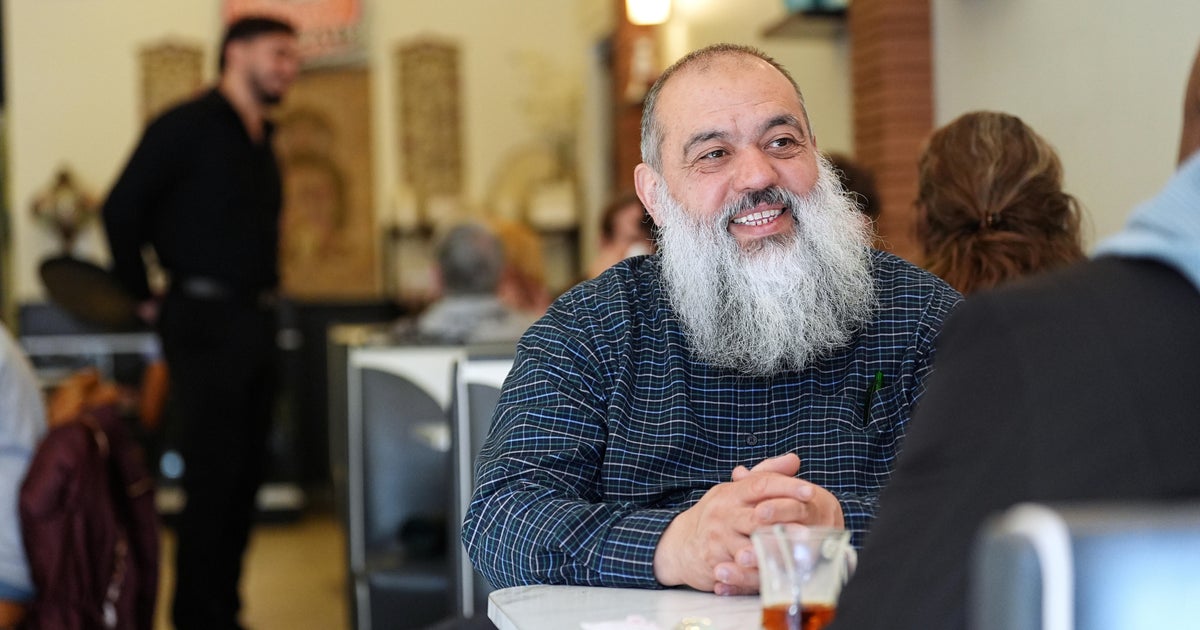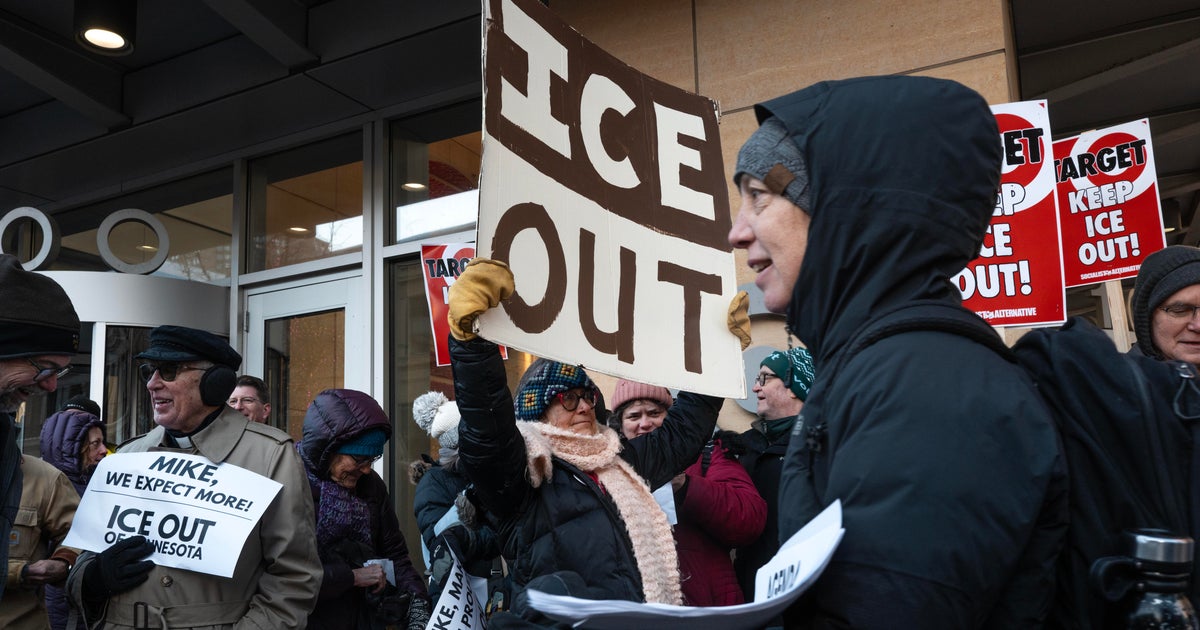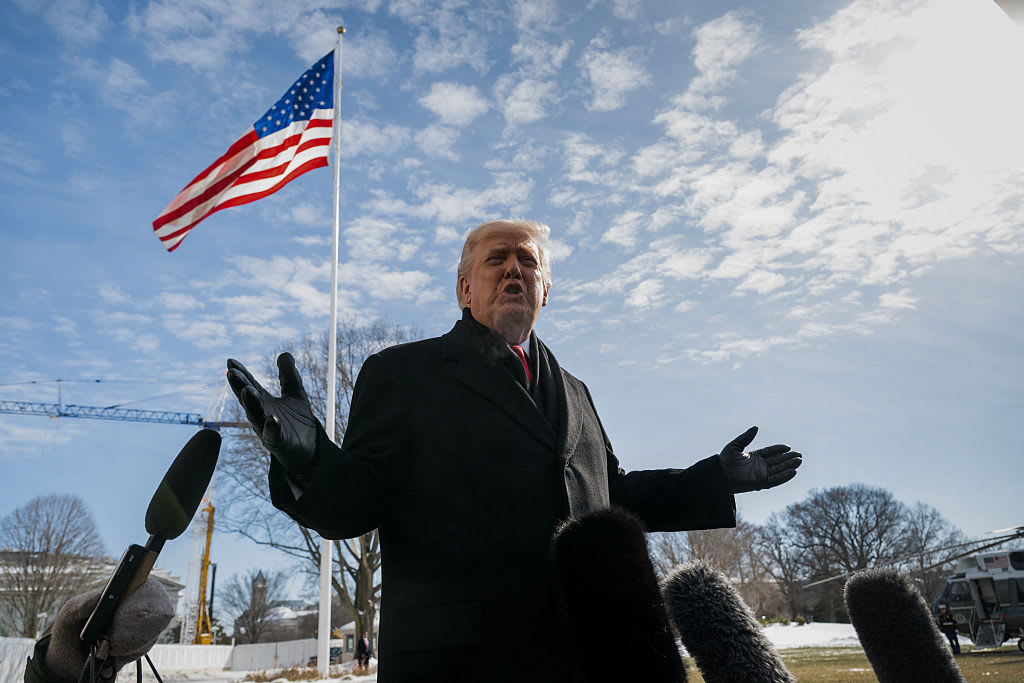Trump immigration plan calls for citizenship path for Dreamers, border spending
The White House presented a plan to Congress on Thursday offering a path to citizenship for 1.8 million undocumented immigrants brought to the U.S. as children, many of whom are currently in the U.S. with temporary Deferred Action for Childhood Arrivals (DACA) protection. The offer is part of an immigration deal that also includes $25 billion for a "border wall system," an end to the visa lottery system and restrictions on family-based migration.
Senior administration officials gathered in the West Wing to brief reporters on a legislative proposal for the Senate that puts forth "a compassionate solution for the DACA immigrants -- and one that the president can sign and have bipartisan support and should be able to pass both chambers of Congress."
"It is an extraordinarily generous concession to get us to 60 votes, and it again rejects the historically failed model that defined the Graham-Durbin approach to immigration, which is very large increases of low skilled immigration combined with very generous grants of legalization and no enforcement," a senior administration official said. The plan presented by Senators Lindsey Graham and Dick Durbin "compounds all of the worst features of the immigration system," the official added.
On Wednesday night, Mr. Trump held an impromptu press conference with reporters in Chief of Staff John Kelly's office in which he said that he was open to a pathway to citizenship after ten to twelve years for recipients of Deferred Action for Childhood Arrivals (DACA). A senior administration official specified that this included the 690,000 people who are currently registered under DACA.
But by Thursday, that number had increased to include 1.8 million undocumented immigrants who the administration believes will meet the requirements for a pathway to citizenship, but never got around to registering for DACA under the Obama administration.
"This status can be revoked in light of criminal conduct, public safety concerns, national security concerns, fraud or a public charge," a senior official added.
The official White House press release says "good moral character" is a requirement.
The White House's proposal also curbs "chain migration" by limiting it to nuclear family — spouses and minor children — and excluding sponsorship of extended family.
"But you'll have wives and husbands and you'll have sons and daughters, but parents is a tricky situation because they came here illegally," Mr. Trump told reporters on Wednesday night.
The framework also eliminates the Diversity Visa Lottery, a program the president has consistently mischaracterized, and will reallocate those visas to reduce the backlog of high skilled employment and family based immigration. The White House estimates that the backlog consists of roughly 4 million undocumented persons.
Another senior administration official pronounced the Graham-Durbin immigration proposal dead on arrival. But the official added that while they have briefed many on the hill on the proposal, the White House had not received any assurances from the Senate that a version of this bill will make it to the floor by the week of Feb. 6th.
"I think an awful lot of the certain members of Congress used this as perpetual excuse: 'We don't know where the president is at,'" a senior administration official said. "Well here it is, so this is the president's position. It goes over to the Hill, they digest it, develop a bill they think they can passed. But this is the bottom line of the president."
It's hard to say yet how this proposal will play out in Congress.
Senate Majority Leader Mitch McConnell, R-Kentucky, said members can "look to this framework for guidance."
"I want to thank President Trump and his administration for their work on this important issue," McConnell said in a statement. "This framework builds upon the four pillars for reform that the president has consistently put forth, and indicates what is necessary for the president to sign a bill into law. I am hopeful that as discussions continue in the Senate on the subject of immigration, Members on both sides of the aisle will look to this framework for guidance as they work towards an agreement."
Speaker of the House Paul Ryan, R-Wisconsin, did not comment on the substance of the proposal.
"We're grateful for the president showing leadership on this issue and believe his ideas will help us ultimately reach a balanced solution," said Doug Andres, spokesman for Ryan.
The cost that the White House has put forth to build the wall along the southern border has incrementally increased over the past few weeks. During a bipartisan meeting on immigration reform, Mr. Trump told a group of senators that he could build the wall for $18 billion and that he'd do it "ahead of schedule and under budget." Now, the administration argues that they need $20 billion to build the wall and an additional $5 billion to pay for technological costs around the wall and what a senior official called "other mitigation efforts." Overall, while the White House would like to see a total of $30 billion allocated for border security but for the DACA phase, they say that $25 billion suffices.
If Congress is unable to reach a deal, the White House could not ensure that current Dreamers will be protected from deportation once DACA protections expire on March 5th.
"They won't be targeted but if they fall into the hands of ICE for some reason," they will be processed for deportation, a senior official said.



